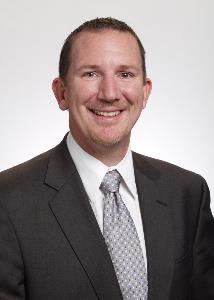 This interview was conducted in 2021.
This interview was conducted in 2021.
Q1: Describe your current position/role.
I am currently a Northrop Grumman Director of Software Engineering with the responsibility of migration and adoption of the USAF PlatformOne (P1) on the engineering and manufacturing development (EMD) phase of the Ground Based Strategic Deterrent (GBSD) program.
Q2: What are one or two of your proudest professional accomplishments?
Chief Engineer of a DOD ACAT 1 (Major Acquisition) of an Analyst Modernization (AMod) enterprise content and metadata repository program. Technical Lead through the Opportunity Capture, Chief Engineer through Proposal and Chief Engineer into execution. As such, created the winning technical strategy, facilitated 9 Technical Exchange Meetings (TEMs) with our 45 teammates focused on the Technical Task Orders (TTOs), collecting the data necessary to frame the TTO response as well as the technical "story" for the volume. Led the 753 page technical response, leading the team through creation of the 92K word technical offering. As the Chief Engineer, responsible for ensuring the technical success of the repositories, mentoring and developing the technical staff on the program, overall; program risk management, supporting program execution as well as introducing technology innovation and program growth. Both enterprise repositories, built on the Free and Open Source (FOSS) Apache Hadoop stack achieved reach their Initial Operating Capability (IOC) Milestones ahead of schedule and under budget.
I was the Capture and Proposal Technical Lead for our $2B LEAGUE overseas family of captures. The ARSENAL portion of LEAGUE is a Corporate Priority Win for a $1.1B ID/IQ analytics opportunity. The IPSWICH portion of LEAGUE is a $400M Sector Priority Win for the infrastructure. I led the teams that crafted responses to the customers competitive Pre-Qualification Questionnaires. For both ARSENAL and LEAGUE, we were down selected to compete in the next phase of competition on the strength of our technical response. Created the ARSENAL technical strategy that supported the proposal – derived Technical Win Themes and Discriminators and proof for them. Created staffing plans for both proposal efforts and led the creation of the ARSENAL 288 page, 83,000 word response outlining our strengths in 11 technical areas, responding to 3 different technical problems, as well as describing how we would delivery and support analytic capabilities. Further, along with the ARSENAL bid Chief Engineer, we led the creation of orals presentation material covering the entire breadth of our technical response. In January 2014, the customer awarded NG an ARSENAL contract, but were not selected as the service provider for IPSWICH.
Q3: What is the biggest challenge you face as a Systems Engineer?
The biggest challenge is when customers don’t see the value of SE or systems engineers. They don’t think they need “it” or thing SE is simply documentation or worse yet, think it is just systems administration.
Q4: What advice do you have for individuals starting their career as a Systems Engineer?
First -- Adopt a “T” model –going deep in a technology or domain before going wide across multiple technologies or domains. Don’t try to go wide before going deep. The experience gained by becoming a SME in an area will benefit you throughout your entire career.
Second – get a long-term mentor. Someone who is outside of your management chain, and at least 2 levels higher in the organization.
Q5: How do you continue to learn about SE? What professional development activities do you do?
Participate in INCOSE Chapter meetings, INCOSE IW and IS.
Q6: What are the next career goals you want to achieve?
Retirement.
Q7: What are some of your hobbies/interests outside of work?
I am an avid SCUBA diver, recreational and technical, as well as an avid philatelist collecting US Revenues and TaxPaid stamps and as well as fancy cancellations on the 1861 3cent Washington issue.
Q8: Why did you decide to get the SEP certification?
As a active practicing SE, I wanted the external organization recognition as a SE professional.
Q9: How does the SEP certification impact your professional career?
I am one of only a few (11) ESEPs at my company, I am recognized as a subject matter expert.
Q10: What has surprised you in the past five years related to systems engineering?
Regardless of the pace of change or the technical area of change (e/.g., adoption of DevOPS), or domain, the need for system engineering has not gone away, but has actually grown. The ability to visualize the entire system or enterprise and help stakeholders rationalize decisions over the system is still a requirement.
Q11: What job titles have you had other than “Systems Engineer?”
Director of Programs, Director of Engineering, Program Manager, Business Development Manager, Capture Manager, Chief Engineer, Technology Evangelist.
Q12: Are there any other final comments you would like to make?
One of the many things I appreciate about INCOSE is the ability to give back to the profession. Since 2014, I have served on the Certification Advisory Group (CAG), now twice as the chair. It has afforded me the opportunity to affect the number of SEPs by growing and evangelizing the program and creating new advocates.